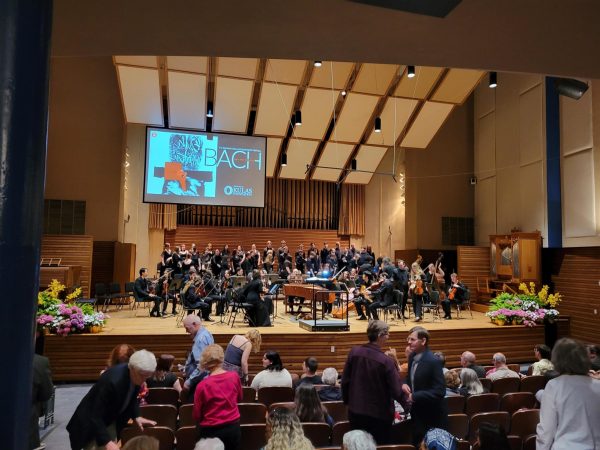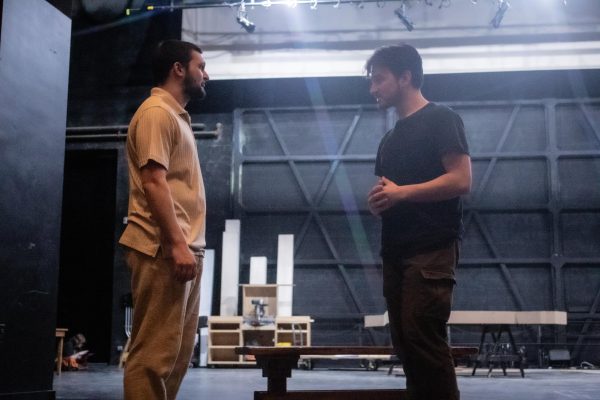Voice program premieres new version of classic opera
Members of the Baldwin Wallace voice performance program performed in a new production of Claude Debussy’s 1902 opera “Pelléas et Mélisande” the weekend of Feb. 28.
“Pelléas et Mélisande” tells the story of a love triangle between two half-brothers and a mysterious woman and is based on Maurice Maeterlink’s play of the same name.
The new production, stylized as “Pelléas + Mélisande” for this version, was abridged and translated into the English language by director Scott Skiba through collaboration with the cast of singers.
“We were cast in the show before we had the translation,” said junior Katherine Jefferis, who sang the role of Mélisande. “So, it was a lot of collaboration in terms of music learning with figuring out what words tell the story the best.”
According to Jefferis, performing a new version of a known work offered the singers the opportunity to reimagine their characters and the tone of the piece. While all the music performed on the stage of Kleist Center for Art & Drama’s black box theatre was penned by Debussy, the abridged nature of BW’s production meant that the decisions on whether to keep or omit certain parts could alter the audience’s perception of the work.
“It’s an interesting experience to premiere a new translation and a new cut of a work,” Jefferis said. “The scenes that you don’t see affect how our characters come across to the audience. We had fun making a new interpretation that’s a little more dark, a little more creepy and disturbing.”
For senior Jake Dufresne, who sang Goloud, preparing Debbussy’s intricate score presented many challenges and opportunities for growth in his training.
“This show was extremely hard rhythmically and melodically,” Dufresene said. “So, you really have to use your brain in almost every single capacity.”
Dufresne said he learned many lessons during the rehearsal process, including flexibility due to the many changes made during the process of adapting the opera.
“We were changing things probably all the way up until a week and a half before the show opened,” he said. “You really have to be understanding. You can memorize it and understand it, but you have to know that it might change at any given point.”
According to Jefferis, working on “Pelléas” with conductor and frequent BW collaborator Domenico Boyagian taught her the importance of collaboration and trust.
“[Boyagian] talked a lot about the importance of figuring out how to tell a story and collaborate because it’s a very difficult piece,” said Jefferis. “To make music out of a piece that’s so challenging takes a lot of effort and communication.”
“When you’re doing emotionally intense things you really have to be emotionally secure,” she continued. “It’s really helped me learn the importance of building relationships with my colleagues.
According to Dufresne, the abridging and translating of the opera may point to a future trend of efforts to make opera more accessible to audiences, particularly young people.
“In order for opera to stay relevant in today’s time, we have to go with the trends,” said Dufresne. “It’s hard for people to try to follow along with an opera that’s in a different language … it’s respectable to do it in the vernacular that the composer originally intended, but we have to start appealing to the younger audiences.”
The Exponent is looking for financial contributions to support our staff and our newsroom in producing high-quality, well-reported and accurate journalism. Thank you for taking the time to consider supporting our student journalists.












































